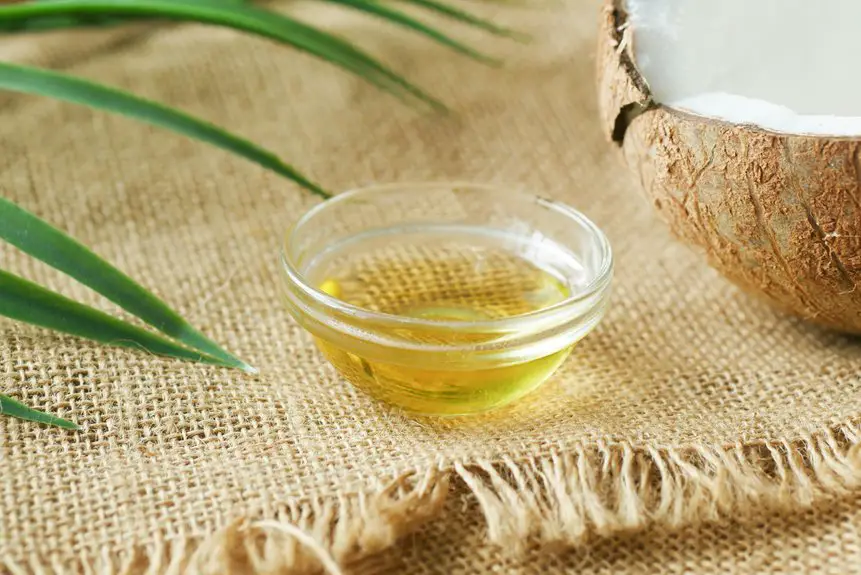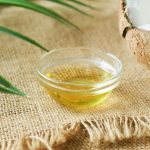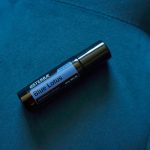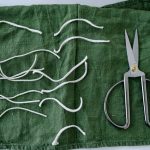To get coconut oil out of fabric, first blot any excess oil without rubbing. Sprinkle baking soda or cornstarch on the stain to absorb the oil and let it sit for 15–30 minutes before brushing it off. Apply liquid dish soap directly to the stain, gently work it in, then wash with warm water using a heavy-duty detergent. Avoid drying the fabric until the stain is gone. Keep fabric care in mind, and if you want more tips to tackle tough stains, there’s helpful advice ahead.
Table of Contents
Key Takeaways
- Blot excess coconut oil gently with a paper towel to avoid spreading the stain.
- Sprinkle baking soda or cornstarch on the stain to absorb oil, then brush off after 15-30 minutes.
- Apply liquid dish soap directly to the stain and gently work it in before washing.
- Wash the fabric in the warmest water safe for its type using a heavy-duty detergent.
- Avoid drying the fabric until the stain is completely removed to prevent setting it permanently.
Identifying the Type of Fabric
Before you begin treating coconut oil stains, you need to identify the type of fabric you’re dealing with. Different fabrics react differently to stain removal methods, so knowing your fabric helps you choose the safest and most effective approach.
Check the care label on your clothing or textile; it usually indicates the fiber content and washing instructions. Natural fibers like cotton and linen are more durable and can handle stronger treatments, while delicate fabrics like silk, wool, or rayon require gentler care.
If the label is missing, you can test a small, hidden area with water—natural fibers absorb water quickly, synthetics don’t.
Pre-Treatment Techniques for Coconut Oil Stains
Since coconut oil can quickly set into fabric fibers, you’ll want to act promptly to loosen the stain. Start by gently blotting the excess oil with a clean paper towel or cloth—avoid rubbing to prevent spreading.
Next, sprinkle a generous amount of baking soda or cornstarch onto the stain; these powders absorb oil effectively. Let it sit for 15 to 30 minutes before brushing it off.
Sprinkle baking soda or cornstarch on the stain, let it absorb oil for 15–30 minutes, then brush off.
Alternatively, you can apply a small amount of liquid dish soap directly to the stained area. Work it in gently with your fingers or a soft brush to break down the oil.
For delicate fabrics, test any pre-treatment on a hidden spot first. These steps prepare your fabric for thorough cleaning, improving your chances of completely removing the coconut oil stain.
Washing Methods to Remove Oil Residue
Two effective washing methods can help you remove coconut oil residue from fabric after pre-treatment.
First, opt for a warm water wash using a heavy-duty detergent designed to break down oils.
Second, consider a soak-and-wash approach, where you soak the fabric in warm water with detergent for 30 minutes before washing as usual.
Both methods increase your chances of eliminating stubborn oil traces.
To enhance your washing success, keep these tips in mind:
- Check fabric care labels to avoid damage.
- Use the highest water temperature safe for the fabric.
- Avoid putting the fabric in the dryer until the stain is gone.
- Repeat washing if oil residue persists.
Using Household Items for Stubborn Stains
When stubborn coconut oil stains won’t budge with regular washing, you can turn to common household items to boost your cleaning power.
Start by sprinkling baking soda or cornstarch onto the stain to absorb excess oil. Let it sit for 15-30 minutes, then brush it off gently.
Next, apply a small amount of dish soap directly to the stain, working it in with your fingers or a soft brush. Dish soap is designed to cut grease, making it perfect for oil stains.
For extra strength, mix equal parts white vinegar and water, then dab this solution onto the stain before rewashing.
Always check fabric care labels first and test any solution on a hidden area to avoid damage. This approach often removes even the most persistent coconut oil marks.
Tips for Preventing Future Coconut Oil Stains
Although accidents happen, you can take simple steps to prevent coconut oil stains from appearing on your fabric in the first place.
Being proactive helps you avoid the hassle of tough stain removal later. Here are some practical tips to keep your fabrics clean:
- Apply coconut oil carefully, preferably over a towel or in an area where spills won’t ruin fabrics.
- Use protective aprons or old clothes when handling coconut oil during cooking or beauty routines.
- Wipe off excess oil immediately with a paper towel to minimize transfer onto fabrics.
- Store coconut oil containers securely to prevent accidental spills.
Frequently Asked Questions
Can Coconut Oil Damage Fabric Fibers Permanently?
Like a stubborn stain on your favorite shirt, coconut oil can cling to fabric fibers, potentially causing permanent damage if not treated quickly. But if you act fast, you can usually save your fabric’s integrity.
Is It Safe to Use Hot Water on All Fabric Types?
You shouldn’t use hot water on all fabrics because it can damage delicate fibers like silk or wool. Always check care labels first, and when unsure, opt for cold or lukewarm water to protect your clothes.
Will Coconut Oil Stains Come Out After Drying?
Oh sure, dried coconut oil stains just vanish like magic! But seriously, once dried, they’re tougher to remove. You’ll have to work harder—pre-treat, scrub, maybe repeat—because drying sets those pesky stains stubbornly in place.
Can Professional Dry Cleaning Remove Coconut Oil Stains?
Yes, professional dry cleaning can remove coconut oil stains effectively. They’ll use specialized solvents and techniques you don’t have at home, increasing the chance your fabric returns looking clean and oil-free without damage.
Are There Eco-Friendly Products for Removing Coconut Oil Stains?
You can find eco-friendly stain removers like baking soda, white vinegar, or castile soap that effectively break down coconut oil. These natural options are gentle on fabrics and the environment, so you can clean responsibly without harsh chemicals.
- Spilled Coconut Milk on Your Clothes? Here’s the Fix - June 29, 2025
- A Review of Waverly Akira Coconut Fabric for Home Decor - June 29, 2025
- How to Waterproof Fabric With Coconut Oil: a DIY Experiment - June 29, 2025







